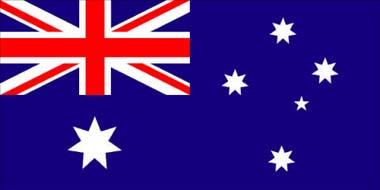Australia
2009-08-19 16:42 BJTSpecial Report: Asia Pacific |
Overview
Australia is a stable, culturally diverse and democratic society with a skilled workforce and a strong, competitive economy. With a population of more than 21 million, Australia is the only nation to govern an entire continent. It is the earth’s biggest island and the sixth-largest country in the world in land area.
 |
| Australia flag |
Australia is one of the world’s oldest landmasses and has been populated by human beings for an estimated 60 000 years. Before the arrival of European settlers, Aboriginal and Torres Strait Islander peoples inhabited most areas of the continent. Australia’s contemporary history is relatively short, with the first European settlement established by Great Britain on 26 January 1788.
Australia has 10 per cent of the world’s biodiversity and a great number of its native plants, animals and birds exist nowhere else in the world. Australia is committed to conserving its unique environment and natural heritage and has a range of protection procedures in place, including World Heritage listings and many national parks and wildlife sanctuaries.
Australia has the 14th biggest overall economy in the world and the 9th biggest industrialised economy (2007). Australia is the 15th richest nation in per capita terms, and is the 6th oldest continuously functioning democracy in the world.
Australia’s population includes Aboriginal and Torres Strait Islander peoples and migrants from some 200 countries. In over 60 years of planned post-war migration, Australia has welcomed more than 6.5 million migrants, including more than 660 000 refugees. During this time, the population has tripled from about 7 million.

 Mail
Mail Share
Share Print
Print


 Video
Video









 2009 China Central Television. All Rights Reserved
2009 China Central Television. All Rights Reserved